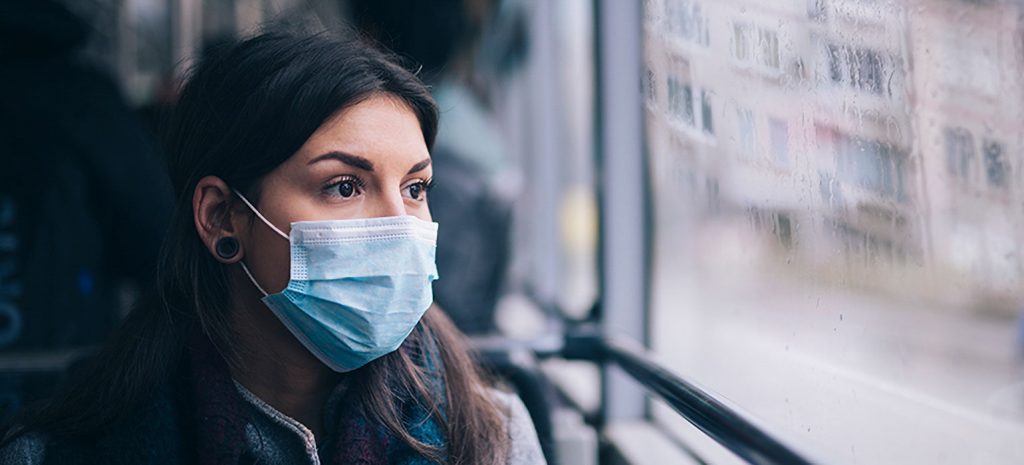Guide to Mask Requirements
As countries around the world strive to ensure that frontline workers, as well as citizens, are protected from COVID-19, consumer product brands and manufacturers have shifted production to meet the growing demand for a wide range of masks: professional PPE, medical mask taste, and consumer/fashion. Given their uses, each type of mask has different requirements and standards. It is important to know what type of mask you are producing and what the requirements are based on that category.

Medical Grade
Medical masks (including medical claims) must comply with various standards, depending on the market. In the European Union, they must comply with EN 14683. In the United States, they should comply with Food and Drug Administration (FDA) Emergency Use Authorisation (EUA) guidance. Non-EUA masks require 510K registration with the FDA and submission of official data to support the application. In both the EU and the US, breathability should be assessed according to EN 14683 – Appendix C.
Medical masks must also be evaluated for BFE – an assessment of how they filter pathogens – and, in the US, particle filtration efficiency (PFE). As medical products, they must be manufactured in a sterile environment, which means that the production system is subject to ISO 13485 assessment by a notified body. Storage information should be printed on the packaging and, in the EU, the CE marking may also appear on the outer packaging.
Consumer Goods/Fashion
When it comes to offering fashion masks to consumers, it is advisable to check the requirements of the place where the item is sold. Some EU countries such as France and Spain have developed guidelines for reference. The European Commission recognised the urgent need for a uniform and consistent level of safety for community masks and, as a result, the European Committee for Standardisation (CEN) issued guidelines for the quality and compliance of community masks in accordance with CWA 17553:2020. Masks in these countries are not required to fulfil performance requirements. However, if any protective claims are made, the product may fall within the scope of the PPE regulations. Similarly, in the United States, cloth masks cannot claim or imply any medical effects.
Face masks and similar masks should not contain claims such as bacterial protective properties, as this may be considered a medical use. As consumer products, they must comply with the US Consumer Protection Safety Information Act (CPSIA) and California Proposition 65. They must also meet the relevant REACH requirements for restricted substances, including azo dye restrictions in Europe. In the US, they require textile labelling as well as fair packaging and labelling requirements. In addition, the standards-setting body ASTM International is leading a new effort to develop voluntary standards for fashion and community masks in the U.S., which will enable the Centers for Disease Control and Prevention to make recommendations to Americans about purchasing and wearing masks. ASTM Standard.
When making masks, keep in mind that care labels should be easy to reach, but location is not specifically required. Antimicrobial claims are not recommended for fashion masks because the claims can be misleading and suggest that the mask is bacteriologically protective when, as noted above, they are not. In addition, since the finishes will be in close contact with the face, mouth and nose, toxicity should be considered in the handling of any application.
Specialist Personal Protective Equipment (N95/KN95)
N95/KN95 masks reduce the wearer’s exposure to particulate matter by filtering out at least 95% of very small particles, including bacteria and viruses. In the U.S., they must be evaluated, tested, and approved by the National Institute for Occupational Safety and Health (NIOSH) in accordance with the requirements set forth in NIOSH 42 CFR Part 84 NIOSH requires manufacturers to submit data demonstrating that the respirator complies with the requirements, including pre-certification tests for inhalation/exhalation resistance, particle filtration efficiency, and valve leakage. In addition, N95 masks used for medical purposes require specific evaluations in FDA documents 878.4040 and 880.6260. In the UK and EU, respiratory masks (or filtering masks) must comply with EN 149 and be certified by a Notified Body.
Masks play an increasingly important role in the health and well-being of people around the world. Understanding the requirements of a product can help to assess it more quickly, saving time and money in getting these popular products to market. Learn more about the requirements for face masks and other protective equipment in our Manufacturing Guide.
